
“The Irish bioprocessing industry faces new challenges and opportunities with the expanding pipeline of advanced therapies.”
Barry

They

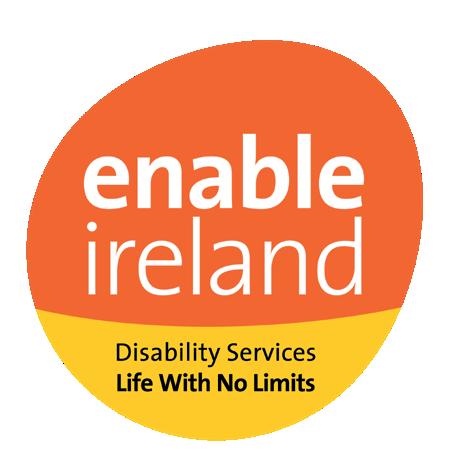
We hear the voice of the child and family as the team works to set and achieve goals.
Rory
Future of Healthcare Q1 2024 | A promotional supplement distributed on behalf of Mediaplanet, which takes sole responsibility for its content
Shortt,
NIBRT Page 04 “People
at the very heart of our health service.
and make decisions.” Loretto Grogan, National Clinical Information Officer and Director of Nursing, HSE Page 06 www.healthnews.ie
Business Development Manager,
are
drive change
Kiely,
Social Worker, Enable Ireland Read more on Page 07 Image provided by Enable Ireland
Senior
Predictive medicine: AI’s impact on disease progression and treatment
AI-driven research with industry and government funding is revolutionising personalised medicine, stroke prevention and patient outcomes.
In today’s healthcare landscape, the push towards personalised medicine is more than just a trend; it’s a paradigm shift driven by the fusion of groundbreaking research and technological advancements.
Researchers at ADAPT, the SFI research centre for AI-Driven Digital Content Technology, are harnessing the power of sophisticated algorithms and machine learning models. They aim to tailor medical treatments to the unique patient needs by leveraging the vast potential of AI and big data. A cornerstone is the development of innovative platforms specifically designed for the ongoing analysis of disease risk factors.
Dynamic stroke prevention innovation
Tackling challenges of an ageing demographic, one major research focus is on stroke prevention. Stroke will become the leading cause of death and dementia in the developed world. Kings College London reports a predicted 59% increase in stroke numbers in Ireland. Utilising real-time data, ADAPT’s innovations offer dynamic risk assessments, empowering healthcare providers to make informed decisions and customise treatment plans like never before.
Interdisciplinary collaboration
This research is not just about technological prowess; it’s rooted in a deep-seated commitment to interdisciplinary collaboration.
Bringing together experts from diverse fields, ADAPT fosters an environment where innovation thrives, speeding up research into real-world applications.
This collaborative ethos ensures that advancements are made with ethical considerations at the forefront, particularly in terms of data-sharing, patient privacy and consent while researchers work closely with patient-led organisations such as IPPOSI, industry partners and government agencies.
AI improving patient outcomes
AI’s role in this transformation cannot be overstated. Improving how patient data is collected, analysed and applied addresses critical challenges in data harmonisation, integration and governance. The result is a more refined approach to understanding diseases and developing treatments.
Professor John D. Kelleher, the Centre’s Director at TCD, emphasises the impact of the work:
“The identification of patterns and biomarkers is crucial for understanding complex diseases. Our research not only broadens the scope of data available but also accelerates the path to new treatments and enhances our predictive capabilities regarding disease progression, improving patient outcomes.”
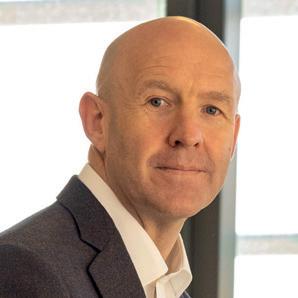
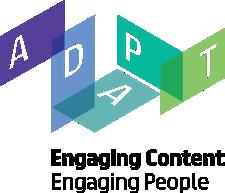
Transforming healthcare together: trends, challenges and solutions
Addressing Ireland’s healthcare challenges through innovation, collaboration and data privacy, with a focus on solutions and collective action.
Ireland’s healthcare challenges are daunting but solvable, with issues like waiting lists, trolleys and staff recruitment. Additionally, there are underlying trends and policy shifts, such as the move towards community care under Sláintecare, an ageing population and the imperative for equitable healthcare access.
While the health technology sector can’t solve all of these problems, it has been proven to mitigate many of them and increasingly plays a critical role in shaping our response to problems it cannot directly address.
Unlocking the potential of big data and your data
Utilising big data is crucial for governments and organisations to effectively target support, identify emerging disease trends and comprehend chronic conditions. Importantly, data should stay private and still have the capability to accompany you as you engage with healthcare providers. It must be safeguarded to ensure your protection, with oversight to guarantee ethical and proper usage.
and the HSE’s Implementation Plan for Digital Transformation is highly anticipated.
Cooperating and collaborating, not competing
Utilising big data is crucial for governments and organisations to effectively target support, identify emerging disease trends and comprehend chronic conditions.
These foundations are essential; however, it is widely acknowledged that these critical steps cannot achieve the level of transformation required in isolation. Post-Covid, we, as the trade association for healthtech, work closely with all stakeholders supporting this national effort. As such, every day, we observe companies sharing insights, setting aside competition and engaging in unprecedented collaboration between the public and private sectors. This collaboration leads the way in driving pathways for adoption and accelerating transformation.
The impact was evident at the HSE ‘Better Together’ conference, with HSE teams demonstrating the immense value realised from co-created, patient-centred solutions with industry. This collective approach, tackling common aims, will certainly deliver outcomes to our healthcare system far greater than the sum of any parts.
The initial foundations to make sure both happen are in motion. Elaine Murray, EIT Health and HealthTech Ireland member, supports this work locally and with the EU Commission. “In Ireland … health information policies are undergoing rapid change,” says Murray.
“The Health Information Bill provides a legislative framework for data sharing via summary care and shared care records, as well as the establishment of a National Health Information Authority … This Bill is a stepping stone toward the EHDS (European Health Data Space) set to be voted on in 2024. This will be instrumental to further unlock the potential of data.”
In parallel, after a period of consultation, with insights delivered from HealthTech Ireland members, the Department of Health’s Framework
@HealthnewsIE
Project

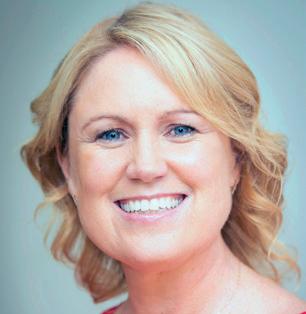
@MediaplanetUK
02 READ MORE AT HEALTHNEWS.IE AN INDEPENDENT SUPPLEMENT FROM MEDIAPLANET WHO TAKE SOLE RESPONSIBILITY FOR ITS CONTENT MEDIAPLANET
Paid for by ADAPT Centre
Find out more at adaptcentre.ie
Professor John D. Kelleher Director of the SFI ADAPT Centre and Chair of Artificial Intelligence at Trinity College Dublin
Murray Public Affairs Lead, EIT Health Ireland-UK Susan Treacy Chief Executive Officer, HealthTech Ireland
Elaine
Fionnán Morrin fionnan.morrin@mediaplanet.com Business Development Manager: Samantha Taylor
Ireland: Ross Bannatyne | Head of Print & Design: Thomas Kent Designer: Aimee Rayment Content Editor: Angelica Hackett O’Toole | Head of Digital Operations: Harvey O’Donnell Paid Media Manager: Jonni Asfaha Social & Web Editor: Henry Phillips Digital Content Editor: Carolina Galbraith Duarte All images supplied by Gettyimages, unless otherwise
Contact
ie.info@mediaplanet.com
+44 (0) 203 642 0737
Manager:
Managing Director -
specified |
information:
or
Please recycle
Streamlining medtech clinical trial development with end-to-end support
Ireland excels in medical innovation, hosting top medtech and pharma firms. However, innovators face hurdles hindering full potential realisation.
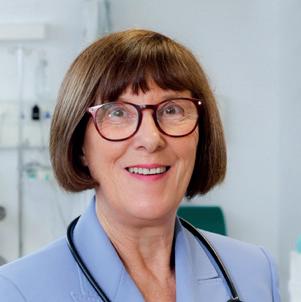
According to Professor Fidelma Dunne, smaller companies may not have the experience or know where to obtain the support and expertise to get a great idea to the clinical trial stage.
The Institute of Clinical Trials was established at the University of Galway to ensure that Irish innovation in the medtech and pharma sector remains a world leader.
Comprehensive clinical trial support Dunne, the Institute’s director, says the Institute offers end-to-end support in conducting clinical trials in processes such as addressing regulatory hurdles, appropriate trial design and protocol development, supplementary development of supporting systematic reviews, core outcome sets and use of patient-reported outcomes, health economic analysis and communicating findings to ensure patient impacts.
about; education and training; translating results into policy guidelines and impact to healthcare.
“Having people to help with writing as well as navigating through the documentation will relieve pressure for those inexperienced in such areas but who nonetheless might have a great device or idea,” adds Dunne.
She says it is crucial to capture good ideas and avoid them being developed elsewhere, as failure to do so would mean: “Irish patients, the Irish economy and the Irish health system are losing out.”
Ireland has the highest per capita employment of medtech professionals in Europe, so we punch above our weight.
“The Institute is poised to take people along a continuum of clinical research from the very beginning when thinking about a trial and putting a trial design together, through to delivering the final report to stakeholders,” she adds. “We also pledge to ensure that clinical trial results have a meaningful output to health services and patients.”
Five pillars of clinical trial design Institute activities are designed around five pillars: developing partnerships with stakeholders, creating an Accelerator Hub with experts to make the delivery of the clinical trial process simpler; looking at trial designs and additional activities researchers may not have thought
Balancing diverse user needs in a complex clinical universe
Innovating product solutions in healthcare is complex, but a user-centred approach significantly reduces risks, boosts efficiency and ultimately provides better outcomes.
H“ealthcare innovation is hard,” explains Frank Long, Director at Frontend.com, which provides research and design services to the medtech and pharmaceutical industries.
“It’s a complex ecosystem, with multiple stakeholders — each with their own unique goals and requirements. For a solution to succeed, whether it’s a drug therapy or medical device, it needs to work for everybody; this is what makes it so difficult,” he explains.
Innovation challenges
Innovation in the healthcare context requires time and resources, and the risks are high.

Everybody is trying to deliver better patient outcomes at an acceptable cost, but the pace of change can be disruptive. The

John Kilmartin Medtech Regulatory Consultant, Adjunct Professor at University of Galway
Success for Ireland’s medtech sector
Independent medtech regulatory expert Mr John Kilmartin, Adjunct Professor at the University, says Ireland’s medtech sector is a fantastic success story with a mix of multinationals, SMEs and innovators.
“With about 450 companies,” he continues, “Ireland has the highest per capita employment of medtech professionals in Europe, so we punch above our weight. “However, there is still an opportunity for more clinical research to be conducted. At the Institute, we have all the ingredients — clinicians, SMEs multinationals, academic infrastructure — and can provide a fantastic coordination role.” Kilmartin says the Institute can also play a strategic role in dealing with regulators, ethics committees and sponsors, as well as in tactical execution and implementation of trials.
Paid for by University of Galway
Find out more at universityofgalway.ie

emergence of AI, wearable tech and remote monitoring has reinvented many traditional treatment protocols. Likewise, the shift away from hospital-based treatment towards homecare has challenges. Patients play a more active role in their therapy; however, healthcare teams need to provision, train and support these patients, adding new responsibilities.
Solving the right problems
“The reason that healthcare projects often fail, is because people identify the wrong problems to solve,” explains Long. “We work with clients early on to define the right problem to solve — and then we solve it in the right way. We research the needs of patients and professionals and align those with the product development roadmap.
“We then deliver practical design
WRITTEN BY Mark Nicholls

solutions to the product team. A lot of our work centres around prototyping and testing, which facilitates clinical validation early in the process, reducing risks and development costs.”
Transforming healthcare design globally
Since 1998, Frontend has helped a global client base to innovate solutions that underpin investment and deliver commercial success. Crucially, providing solutions that work for all people in the healthcare system, streamlining healthcare delivery and, ultimately, designing better patient outcomes.
“Over the last five years, the team at Frontend have been invaluable in developing patient journey insights that allow us to better understand the patients we serve,” says Garvan Byrne, Head of Healthcare Solutions, Amgen Ireland.
“They worked with us to define the digital roadmap of the Lenire Tinnitus Treatment Device for both patients and Healthcare providers,” shares Diarmuid Flavin, COO, Neuromod Devices.
“They worked with us to define how surgeons will use the next generation of intra-cardiac imaging and have supported us from early user research throughout the product development process,” says Christoph Hennersperger, CTO of LumaVision.

MEDIAPLANET READ MORE AT HEALTHNEWS.IE 03 AN INDEPENDENT SUPPLEMENT FROM MEDIAPLANET WHO TAKE SOLE RESPONSIBILITY FOR ITS CONTENT
Scan the QR code to find out more Paid for by Frontend.com
Frank Long Director, Frontend.com
Professor Fidelma Dunne Director of the Institute for Clinical Trials, University of Galway
Medical innovation puts patients first for a healthier ageing population
Learn about the research and medical innovations tackling rising chronic illnesses in Ireland, for a healthier ageing population.
In Ireland, life expectancy continues its upward trajectory, largely due to medical advancements. However, this positive trend is accompanied by challenges, notably an increasing number of people living with chronic illnesses. Addressing this can secure a high quality of life for the ageing population.
Patient-centric medical innovations
CÚRAM, the SFI Research Centre for Medical Devices, plays a pivotal role in tackling these challenges. Central to our approach is understanding the patient experience. By involving patients in research from the outset, we ensure efforts are tailored to meet real healthcare needs.
Our work spans wide-ranging medical innovations, from developing hydrogels to heal the heart after a heart attack to designing patientfriendly medication delivery systems for diabetes management, encompassing translational and basic research. Our research also delves into understanding the mechanisms behind diseases like Parkinson’s, aiming to develop more effective treatments.
Collaboration transforming healthcare
Over the past decade, our collaborations with over 45 industry partners have facilitated the translation of medical devices from research to clinical implementation. With dedicated funding of nearly €270 million, we have brought together specialised researchers, industry partners, clinicians and patients to develop solutions for chronic diseases, including chronic respiratory ailments, cardiovascular disease, diabetes, neurodegenerative and musculoskeletal conditions.
Our 10-year journey is a testament to the power of collaboration and innovation in driving positive change in healthcare. Our commitment to excellence continues as we look ahead to even greater advancements in the next decade.
Economic impact of research
Beyond technological advancements, CÚRAM has had a significant economic impact, creating highquality jobs and fostering innovation in Ireland. Our commitment to driving economic growth is reflected by securing EU funding and directing millions to Irish industry partners.
Empowering future healthcare innovators
Moreover, we are working to train the next generation of researchers and professionals in medical device development. Since 2015, we have nurtured nearly 1,000 researchers, ensuring a sustainable talent pipeline. Ultimately, our patient-centric approach and groundbreaking research are transforming healthcare delivery, both in Ireland and globally. By prioritising patient needs and fostering collaboration, CÚRAM is paving the way for a healthier future.
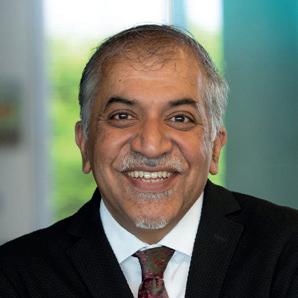
CONCEPT: core national facility for early-stage biotherapy development
A state-of-the-art facility fosters collaborative development pathways in advanced therapies, providing research-grade materials to bridge the gap between innovation and clinical application.
Ireland has had a rich history in pharmaceutical manufacturing since the 1950s. Its manufacturing ecosystem has since evolved, embracing technological advancements in producing small and large-molecule therapies to address various diseases. Today, the Irish bioprocessing industry faces new challenges and opportunities with the expanding pipeline of advanced therapies.
Increasing advanced therapy clinical trials
Global estimates point to 12,500 advanced therapy clinical trials assessing over 80 modalities including approximately 500 cell therapy products. To date, the FDA has approved 27 cell and gene therapies but anticipates 10–20 per year by 2025, in addition to newer technologies such as complex ADCs and CRISPR gene-edited therapies coming through the clinical pipeline.
One of the most significant hurdles in therapy development and novel modalities is translation from academic concepts to clinical trials assessment. Lack of funding, limited access to specialist equipment or knowledge gaps can lead to unfulfilled development pathways.
National Institute for Bioprocessing Research and Training (NIBRT), with the Irish Government and Science Foundation Ireland (SFI), identified this developmental hurdle and devised a strategy called CONCEPT to address it.
Accelerating early-stage advanced therapy development
The CONCEPT facility is in a custom-designed suite of laboratories at NIBRT, located in Dublin. This newly built extension was financed by IDA Ireland to support the next wave of biopharmaceutical investment in advanced biotherapy research and training.
Central to the operation of this facility is state-of-the-art instrumentation funded by SFI. These next-generation instruments drive accelerated workflows and are accessible to academic researchers and those in industry, to rapidly deliver outcomes for the next development phases.
Hope for developers of advanced therapies Ireland’s pharmaceutical manufacturing legacy adapts to meet the demands of advanced biological therapies. CONCEPT bridges the gap between fundamental ideas and clinical trials. With strategic partnerships and cutting-edge equipment, it accelerates research outcomes, fostering collaboration between academia and industry. Positioned at the forefront of biopharmaceutical innovation, CONCEPT signifies a bold investment in Ireland’s healthcare future, facilitating advancements in advanced therapies.
To learn more, please visit the CONCEPT website: concept-nibrt.ie
Instrumentation within the CONCEPT facility was funded with the financial support of Science Foundation Ireland under Grant number 21/RI/9513.
EHDS framework: how patient access to health data can improve outcomes
Health is set to be the first common data space introduced and will allow for the movement of electronic health information within the European Union (EU).
The European Commission published the European Strategy for Data as part of Europe’s Digital Decade policy programme in 2020. “The European Health Data Space (EHDS) is a fundamental game-changer for the digital transformation of healthcare in the EU,” according to Stella Kyriakides, Commissioner for Health and Food Safety.
EHDS empowering EU health data
EHDS seeks to address key challenges facing healthcare systems in Europe resulting from a lack of access to health data and is designed to boost Europe’s competitiveness on the global stage. If passed, individuals will have access to, and control over, their digital health data from anywhere within the EU. It will also make large, anonymised datasets available for research, innovation and policymaking.
Readiness and pan-European assessment
Although the benefits of the EHDS could be farreaching, major obstacles exist because each country is at a different stage of digital health record availability.
In 2023, a pan-European steering committee — coordinated by EIT Health and chaired by Dr Andrzej Rys, Principal Scientific Advisor at DG SANTE, European Commission — was established to assess member states’ readiness for implementation of the EHDS.
As part of this, Irish Medtech and EIT Health Ireland-UK brought together key stakeholder groups on the 30th of May for a special roundtable on how prepared Ireland is and how to realise the benefits.
Health information policy changes
Irish Medtech collaborated with EIT Health IrelandUK on a white paper, which was launched in the European Parliament Offices in Dublin at the end of 2023. The high-level recommendations to support effective implementation in Ireland are:
• Governance: with clear definitions and harmonisation in the EU
• Capacity and skills: with new training to upskill in areas, such as data and cybersecurity
• Resources and funding: with a national strategy to support both private and public actors involved
• Data quality: with harmonised data standards and clear data collection guidelines
• The secondary use of data: with better-shared data to support clinical research and device approval
• Fostering data use in healthcare: with empowered patients and digital literacy measures
In Ireland, health information policies are already undergoing rapid changes, with the Health Information Bill leading to the creation of both summary care and shared care records and the establishment of a National Health Information Authority. Such proactive approaches are expected to pay dividends as we prepare for change in Europe.
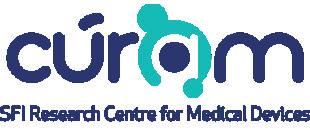
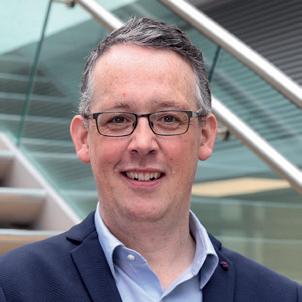 Barry Shortt Business Development Manager, NIBRT
Barry Shortt Business Development Manager, NIBRT

04 READ MORE AT HEALTHNEWS.IE AN INDEPENDENT SUPPLEMENT FROM MEDIAPLANET WHO TAKE SOLE RESPONSIBILITY FOR ITS CONTENT MEDIAPLANET
Paid for by CÚRAM Devices
Find out more at curamdevices.ie
Professor Abhay Pandit Director of CÚRAM, SFI Research Centre for Medical Devices
Ciara Finlay
Medtech and Engineering
Senior Executive, Irish MedTech Association, IBEC
To deliver high-quality healthcare to the local community, effective practice management is critical.
How practice managers can tackle challenges in GP access and management

Access to GPs in Ireland is nationally challenging. Practice managers play a critical role in sustaining healthcare quality, managing operations and optimising IT systems to alleviate burdens on GPs.
Access to GP care is a growing issue in Ireland.
To deliver high-quality healthcare to the local community, effective practice management is critical.
GPs work increasingly long hours to compensate for staff shortages and increasing demands of the growing and ageing population, along with pressures imposed by the transfer of secondary care to general practice and Sláintecare initiatives. This strains timely access and continuity of care. Administrative tasks consume valuable clinical time, exacerbating the issue.
Development of the ‘practice manager’ role
The evolution of the practice manager role is crucial for the sustainability of general practice, especially within this context. The role spans diverse responsibilities, including operational, financial, HR and risk management, as well as ensuring continuity of patient services and compliance with safety and data protection regulations.
With growing complexity arising from legislative changes, staffing challenges and rising administrative demands, strong organisational and problem-solving skills are essential. Most GPs receive limited business training, yet are expected to eventually own and manage mediumsized businesses.
Training and empowering professional practice managers to handle these responsibilities will increase clinical availability and assist in attracting younger GPs who are currently deterred by the burden of managing an SME.
Optimising practice systems and processes
Many practices underutilise their IT systems, often due to lack of guidance and overwhelm. With improved training, practice managers can optimise existing IT systems, analyse available data and provide insights for informed GP decision-making regarding patient services and the future of the practice.
Upgrades to practice websites and telephone systems are often required, as these serve as essential patient touch points. An informative and user-friendly website will reduce phone traffic, ensuring patients seeking urgent medical care can access phone lines easily.
Continuous process improvement is essential to identify bottlenecks, enhance the patient experience and optimise resource allocation. Trained and skilled practice managers can streamline processes, enabling the practice to swiftly adapt when required while prioritising patient care.
Collaborative learning
Practice managers benefit greatly from sharing experiences and learning from peers by joining professional development networks, attending conferences and participating in training. This collaborative approach fosters a supportive environment, enabling managers to gain fresh perspectives, validate strategies and enhance performance in general practice.
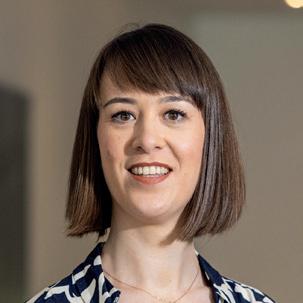
MEDIAPLANET READ MORE AT HEALTHNEWS.IE 05 AN INDEPENDENT SUPPLEMENT FROM MEDIAPLANET WHO TAKE SOLE RESPONSIBILITY FOR ITS CONTENT
Rachel
Bothwell Founder & Director, GP Practice Ally
GP Practice Ally (GPPA) is a unique professional development network, serving the needs of GP practice managers in Ireland. GPPA aims to enhance practice managers’ skills and confidence in navigating the complexities of primary care service management by providing them with access to information, training and peer support. Learn more: gppracticeally.ie
Forging independent futures for people with a disability through care and tech
The health and social care division of a leading Irish disability service provider, with 75 years of expertise, extends into every community, driven by dedicated staff and the voices of people with disabilities.
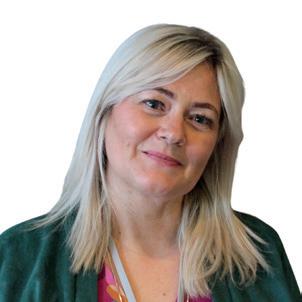 Gráinne Fogarty Director of Care, Rehab Group
Gráinne Fogarty Director of Care, Rehab Group
Providing resource and day centres, respite, home support and residential services to thousands of people across Ireland each day, our work ensures that people with disabilities are empowered to live lives of their choosing. All our staff are focused on breaking down barriers that prevent this from happening.
In 2022 and 2023, RehabCare was represented at the prestigious Irish Healthcare Centre Awards, taking home multiple awards across several categories. It was a source of immense pride for me to see our impact honoured on a national stage. These moments are a testament to the commitment of our staff and the innovative projects and programmes we offer.
Empowering advocacy for inclusion
Tech for independent futures
Our teams utilise technology to ensure total equity of access; we have witnessed how technology-enhanced service provision creates an environment where the people we support can gain new experiences and skills in an inclusive environment and, in turn, enhance their quality of life.
Rehab’s DAT Central, a dynamic digital and assistive technology project, is deployed across our services, offering significant benefits to the individuals we support in their homes and across our services.
Our teams utilise technology to ensure total equity of access.
Advocacy is at the heart of our work. We support people in our services to be active participants in local and national advocacy committees, robustly representing their own needs and the needs of their peers on issues spanning accessible transport and employment to hidden healthcare costs.

Why the
Our teams and support staff have fully embraced the guiding principles of the Assisted Decision-Making (Capacity) Act, supporting the rights of people to make their own decisions — a landmark development in the Irish landscape.
human aspect is a key component of digital health success
Digital health can be transformative. Learn how information and communication technology innovations enhance healthcare delivery, focusing on people and efficient processes.

Digital health refers to the use of information and communication technologies (ICT) in health products, services and processes, combined with organisational change in healthcare systems and new skills to improve health, efficiency and productivity in healthcare delivery. It is about the digitalisation of health services and processes.
Key components of digital health integration
The integration of technology into health services is a multifaceted and complex process. It requires a wide range of considerations, including the scale of its impact, the areas involved and the intricate
These assistive technologies include voice recognition programmes and screen enlargement applications. They will include devices to empower those with limited motor skills to eat or play games independently and other devices for the home to help perform tasks such as cooking, dressing and grooming. The devices are also used to support individuals to remain connected to families and communities, and to support with training and further education.
Today, demand for our services continues to grow; we will continue to respond by working collaboratively with all of our partners and funders. As we look to the future and challenges faced by the disability sector, RehabCare will continue to provide personalised care of the highest standard while challenging stereotypes and creating a more inclusive future for all.
People are at the very heart of our health service. They drive change and make decisions: people who use our health service (patients); people who work in our health service (our workforce); people who provide services for our health service (industry partners); people who provide education for our health service (our educators); and people who develop policies that change our health service (the Government).
Collaborative care delivery empowers digital health
interactions between digital tools and healthcare provision.
There are several components that can be critical to a successful transformation, and these can generally be divided into the three main categories of people, process and technology in addition to a sound understanding of the two basic interacting components: ‘the health service’ and ‘the digital’ — at all these different levels.
People at the heart of health service transformation
We need to focus on people first as their motivation, skills and knowledge will directly impact the success of any process or technology. Neglecting the people aspect sets you up for failure.
Ultimately, digital health revolves around having accurate patient data readily available when and where it’s needed most, ensuring the safe and efficient delivery of care services. It offers a comprehensive perspective of the patient’s health journey, whether they’re receiving diagnosis, treatment or monitoring, regardless of their location.
Having a clear vision and strategy and enabling close collaboration with open and effective communication between all of ‘the people’ in the digital health ecosystem is critical to making this happen.
By addressing the human aspect of digital health and adopting an approach that leaves no one behind, we can better navigate the changes ahead and foster a supportive, collaborative environment for all involved. Digital health is a team sport, and we are always better together.
06 READ MORE AT HEALTHNEWS.IE AN INDEPENDENT SUPPLEMENT FROM MEDIAPLANET WHO TAKE SOLE RESPONSIBILITY FOR ITS CONTENT MEDIAPLANET
Find out more at rehabcare.ie Paid
Loretto Grogan National Clinical Information Officer and Director of Nursing, HSE
for by Rehab Group
Recovery
education: dedicated colleges in Ireland offering mental health support
Learn how recovery education and recovery colleges are empowering people in Ireland to embrace peer support and destigmatise mental health challenges.
In Ireland, the mental health care landscape is evolving. It is increasingly emphasising holistic approaches that empower individuals on their journey toward mental health recovery.
What is recovery education?
Recovery education is a process that empowers individuals to explore and create the knowledge necessary for recovery in their own lives or in the lives of those they support. As defined by the Health Service Executive (HSE) in 2017, it adopts a strengthsbased and adult education approach, offering individuals the choice to engage in learning opportunities that align with their needs and preferences. It is grounded in values such as self-direction, personal experience, ownership and hopefulness, providing a framework that fosters empowerment and autonomy.
Recovery colleges: safe, collaborative space
Central to recovery education are the many recovery colleges operating around the country. These are community hubs offering a diverse range of modules and courses co-produced and co-facilitated by individuals with lived experience of mental health challenges, family members, caregivers, service providers and community partners. Although there is not a recovery college in every county, it is hoped that their work can continue to expand.
Peer educators with lived experience
Key to the success of recovery colleges are the recovery education facilitators, often called peer educators, who have lived experiences with mental health challenges. They work alongside attendees to explore their mental health challenges and discover their identities beyond them.
One of the hallmarks of recovery education is its emphasis on peer support and collaboration. Attendees of recovery colleges not only learn from facilitators but also from each other, sharing experiences and insights in a supportive and non-judgmental environment.
Addressing mental health issues
Moreover, recovery colleges serve as catalysts for destigmatising mental health issues by promoting open dialogue, community engagement and social inclusion. Although there is progress to be made in prioritising wellbeing, recovery-focused education is a positive step for Ireland.
 PR and Communications Officer, Mental Health
PR and Communications Officer, Mental Health

Meeting diverse needs of people with a disability through interdisciplinary care
Interdisciplinary teams are offering a wide range of support to children and adults across Ireland with disabilities.
Children and adults with disabilities across Ireland often face a diverse range of needs. While supporting individuals and their families can be challenging, it is also highly rewarding.
Interdisciplinary teams supporting children with disabilities
Rory Kiely is a Senior Social Worker with Enable Ireland, a national voluntary organisation providing services for over 13,000 children and adults with disabilities and their families. He works on a team alongside physiotherapists, occupational therapists, speech and language therapists, positive behaviour specialists, psychologists, nurses, early childcare workers and paediatricians, supporting children up to 18 years old with complex needs.
“The kind of support depends on each child,” he explains. “One child could have needs that require input from a full interdisciplinary team while other children may just require physiotherapy support.” He has worked on the Children’s Disability Network Team in Sandymount, Dublin for 18 months where onsite facilities include a preschool, school, a hydrotherapy pool, assistive technology and a SeatTech Posture and Mobility Service.
“We hear the voice of the child and family as the team works to set and achieve goals,” he adds. Individualised support plans for each child and family highlight those goals. The social work role could involve, but not be limited to, emotional and practical support, conflict resolution, advocating for the child/ family rights or signposting to different services in the community.
Professional development
Kiely says working with Enable Ireland is highly satisfying, particularly when a family feeds back on gains, enjoyable workshops or interventions that have supported them through a tough time.
They support professional development and facilitate training to upskill staff, such as training for autism or support for siblings of people with disabilities. “It’s a great place to work because it is family-centred and childcentred,” he insists.
“We are open to developing and expanding services, so there is always room for new ideas from staff to enhance services.” With a supportive management style, Enable Ireland is recruiting for various clinical, therapy and support roles across child and adult services.

WRITTEN BY
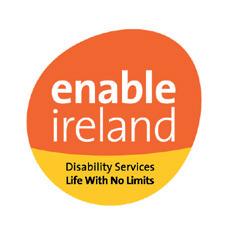
MEDIAPLANET READ MORE AT HEALTHNEWS.IE 07 AN INDEPENDENT SUPPLEMENT FROM MEDIAPLANET WHO TAKE SOLE RESPONSIBILITY FOR ITS CONTENT
Paid for by Enable Ireland Find out more at enableireland.ie/about-us/ careers/our-vacancies Rory Kiely Senior Social Worker, Enable Ireland
Duffy
Ireland
Marie
To learn more about Recovery Colleges in Ireland, visit Mental Health Ireland: bit.ly/recoverycolleges
Mark Nicholls
Ultimately, digital health revolves around having accurate patient data readily available when and where it’s needed most, ensuring the safe and efficient delivery of care services.
~Loretto Grogan, National Clinical Information Officer and Director of Nursing, HSE

08 READ MORE AT HEALTHNEWS.IE AN INDEPENDENT SUPPLEMENT FROM MEDIAPLANET WHO TAKE SOLE RESPONSIBILITY FOR ITS CONTENT MEDIAPLANET
















 Barry Shortt Business Development Manager, NIBRT
Barry Shortt Business Development Manager, NIBRT



 Gráinne Fogarty Director of Care, Rehab Group
Gráinne Fogarty Director of Care, Rehab Group


 PR and Communications Officer, Mental Health
PR and Communications Officer, Mental Health



